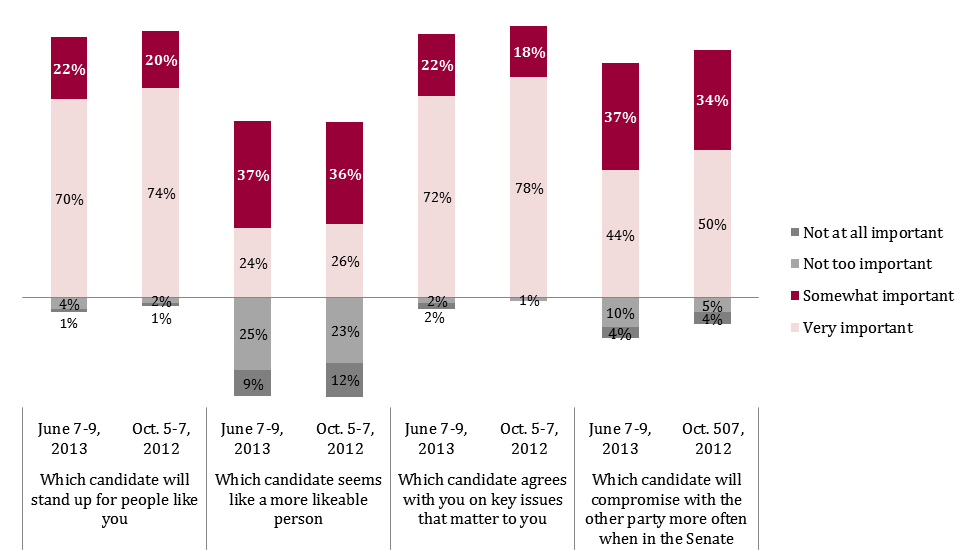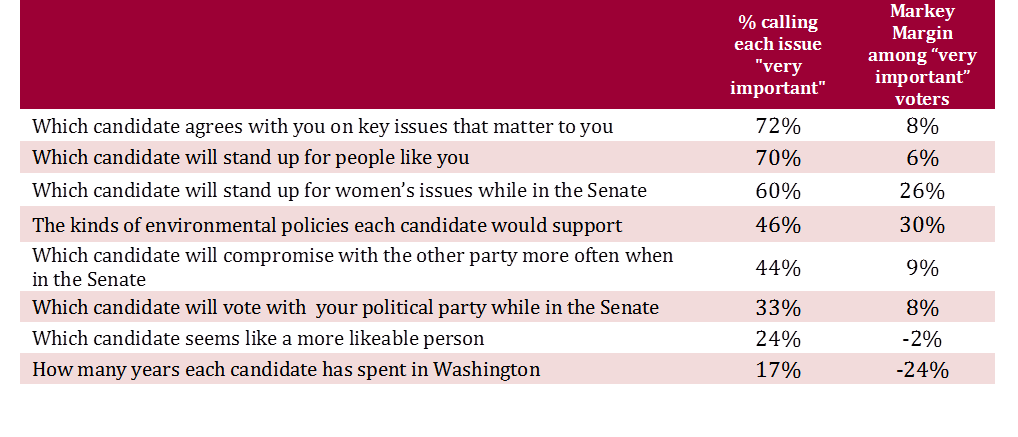What’s trending in the Senate race, part two: what issues matter most to voters?
Read part oneRead our piece for Commonwealth Magazine’s Back Story
The horserace question – who’s winning and by how much – gets the biggest headlines in any election poll. But beneath the headline are findings that help to explain what issues are most important to voters in choosing a candidate.
Based on our poll this week for WBUR, voters seem to be saying that policy issues are more important to them than more general, personal qualities such as likability, time in Washington, and willingness to compromise. This is presents a significant challenge for Republican Gabriel Gomez, who has campaigned largely on these qualities and on more general issues like changing the culture in Washington.
Our latest WBUR poll asked voters how important eight issues were in deciding for whom to vote. Half were repeated from an October 2012 poll of the Warren-Brown Senate race, and half were new issues that have arisen in the course of this race. For the repeated issues, there was very little change of opinion between October 2012 and June 2013.

In both polls, sizable majorities of voters rated “which candidate will stand up for people like you” and “which candidate agrees with you on key issues that matter to you” as very important to their decision. Then there is considerable drop-off. Less than half of voters (44 percent) considered compromise with the other very important, and a candidate’s likability was not important to more than a third of voters in each poll. It appears that, when it comes to judging candidates on these four issues, the electorate is in much the same mindset as they were in 2012.
Voters had mixed opinions on the four new issues. Sixty percent of voters consider a candidate’s stance on women’s issues very important; 46 percent feel that way about environmental issues. A third (33 percent) feel it is very important that a candidate will vote with their political party – less than those who value compromise with the opposite party. Only 17 percent of voters felt that the number of years a candidate had spent in Washington was very important to their decision; a majority (51 percent) felt it was not important.
How do these factors translate into votes? On six of the eight issues tested, Markey has a lead among the voters who rated that issue as very important. And Markey leads on the issues that more voters consider important. Markey has a 26 point lead on Gomez among voters who value women’s issues, and a 30 percent lead with environmental-issue voters.

The only issues on which Gomez leads Markey are ones that less than a quarter of voters rate as very important. Gomez’s largest margin, 24 points, is among voters who care about candidate’s tenure in Washington, but those voters comprise only 17 percent of the electorate.
If he is to win, Gomez may have to consider shifting tactics to highlight specific issues on which he has more common with Massachusetts voters than does Markey. If the race is decided on the issues tested in this poll, Markey would seem to have the advantage.
